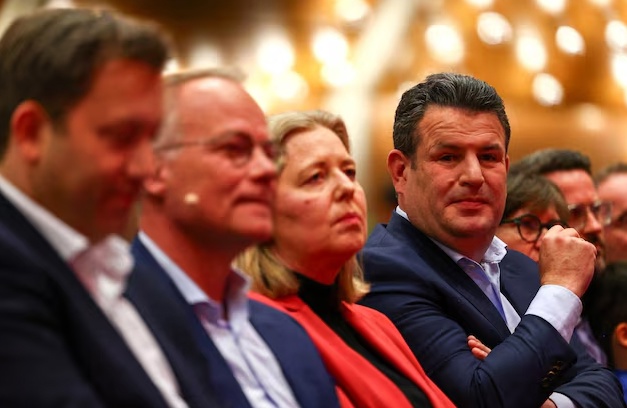The Social Democratic Party of Germany has backed a coalition with the Christian Democratic Union (CDU/CSU), paving the way for a new federal government in Germany and setting the stage for the country’s future political moves.
The party of outgoing Chancellor Olaf Scholz will join a coalition led by the centre-right Christian Democratic Union of Merz and its Bavarian sister party, the Christian Social Union, which won Germany’s February elections with 28.5% of the vote.
The Social Democrats suffered their worst result since World War II, coming in third with only 16.4% of the vote. However, the conservatives need their support to form a parliamentary majority without the Alternative for Germany party, which came in second.
The Social Democrats put the coalition agreement reached in early April to an online vote of its more than 358,000 members, who voted over the past two weeks. The party announced on Wednesday that 56% of its members had taken part in the vote, with 84.6% voting in favour.
The agreement gives the Social Democrats, among other things, the key ministries of finance, justice and defence. The CDU and CSU had previously approved the agreement. The lower house of the German parliament will meet on May 6 to elect Merz as the country’s tenth leader since World War II.
The coalition intends to stimulate economic growth, increase defence spending, tighten its approach to migration and make up for lost ground in modernisation in the most populous country of the 27-member EU. Germany is the continent’s largest economy.
The coalition has a relatively modest majority, holding 328 of the 630 seats in the Bundestag.
The Union and the Social Democrats have already governed Germany together: once in the 1960s and then during three of the four terms of former Chancellor Angela Merkel, who led the country from 2005 to 2021.
